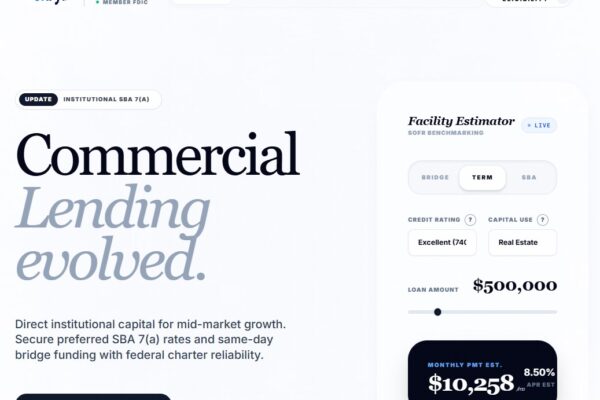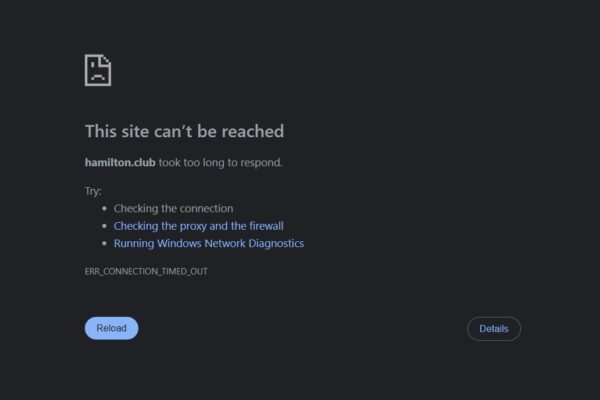Phemex-OTC.com Scam Review -A High-Risk Domain
In the rapidly evolving world of cryptocurrency, the lines between legitimate innovation and outright fraud are often dangerously blurred. When a globally recognized brand is involved, whether directly or by association, the waters become even murkier. We’re turning a critical eye toward a specific domain that has surfaced on the periphery of the established crypto exchange landscape: phemex-otc.com.
The domain name itself, leveraging the established ‘Phemex’ brand and attaching the ‘OTC’ (Over-The-Counter) designation, is a masterclass in calculated deception. It is an intentional effort to piggyback on the reputation of a major player while directing users toward what exhibits all the classic warning signs of a high-risk operation, potentially a sophisticated phishing or “pig butchering” scheme.
Our unofficial review is a cautionary tale, a public service announcement, and a detailed examination of the red flags associated with sites that appear to clone or mimic legitimate OTC services. When dealing with digital assets, the maxim caveat emptor—let the buyer beware—is not just a piece of advice; it is the absolute golden rule of survival.
The Calculated Deception: Why the Name is the First Red Flag
The established and widely recognized cryptocurrency exchange operates under the primary, official domain Phemex.com. This is where their standard spot trading, futures, and, yes, their official OTC service, partnered with a licensed entity, are housed.
However, the domain phemex-otc.com introduces a critical point of divergence. In the digital world, a single misplaced hyphen, an extra word, or a different suffix is the difference between an official institution and a dangerous impostor. The creation of a separate, but highly similar, domain to host an “OTC” service is immediately suspicious.
OTC in finance stands for “Over-The-Counter” and refers to a private, direct transaction between two parties (or a broker facilitating it) without the order being placed on a public exchange order book. This service, when offered by a reputable exchange, is a legitimate feature, typically reserved for high-volume transactions. The scammers’ strategy here is simple yet effective:
- Brand Association: They borrow the name “Phemex” to instantly convey a false sense of trust, speed, and legitimacy derived from the recognized corporate entity.
- Specialized Service Naming: They add “-otc” to suggest the site is a specialized portal for a high-value, exclusive service, implying a higher level of financial sophistication and opportunity. This is particularly appealing to victims of “pig butchering” scams, who are often coached to believe they are engaging in a secret, privileged investment strategy.
- URL Manipulation (Typo-Squatting): They hope users arriving from a social media link, a deceptive advertisement, or even a simple typo will assume they are on a correct, sanctioned sub-brand of the main exchange.
This structural mimicry is the foundation upon which almost all investment cloning scams are built, and it should trigger the maximum level of suspicion from any potential user.
The Ecosystem of Crypto Scam Clones: A Familiar Script
The nature of the web domain phemex-otc.com suggests it likely operates as a key component of a widespread fraud known as a “pig butchering” scheme. This highly successful and devastating form of advanced fee fraud follows a predictable, manipulative script:
Phase 1: The Initial Contact and Cultivation
The scam doesn’t start with the website; it starts with an unsolicited contact. Victims are often reached via text, dating apps (like the case associated with the similar https://www.google.com/search?q=T-OTC.com), or social media. The scammer, who pretends to be an attractive or financially successful individual, takes weeks or months to build a rapport, or “fatten the pig.” The conversation eventually steers toward a secret, lucrative investment opportunity—often in crypto trading, specifically using an “exclusive” OTC platform.
Phase 2: The Credibility Trap (The Website)
This is where a site like phemex-otc.com comes into play. The scammer sends the victim a link to the slick, professional-looking “platform.”
- Professional Facade: The site is meticulously designed to look like a high-end trading desk. It features real-time charts, complicated financial jargon, and security claims. This visual legitimacy overrides the victim’s initial caution.
- Small Wins: The scammer guides the victim through a small initial deposit. Crucially, they allow the victim to make a small withdrawal of profit. This acts as an ironclad guarantee of trust—”See, it’s real! I got my money out!”—and sets the hook deep. This small withdrawal is funded directly by the scammers, not by trading profits.
Phase 3: The Big Investment
Once trust is established, the scammer applies pressure for a significant deposit, often using emotionally manipulative tactics, claiming a massive, time-sensitive “market opportunity” is about to close. The victim, now emotionally invested and confident from the initial “successful” withdrawal, transfers tens of thousands of dollars, or more, to the platform’s designated wallet addresses.
Phase 4: The Blockade and The Fee Trap
The moment the victim tries to withdraw the large sum, the façade crumbles. Suddenly, technical errors appear, or the system requires an arbitrary, absurdly high “tax,” “insurance fee,” or “regulatory compliance deposit” to unlock the funds. The site’s customer support, which is simply another scammer, reinforces this lie. The funds are already gone; the new fees are simply an attempt to “butcher” the pig for one last, smaller, painful payment. This is the Advance Fee Fraud component—money demanded to access money that was never there.
Deconstructing the Technical Red Flags
When assessing any crypto-related website outside of the few globally recognized major players, an investor must become a digital forensic analyst. Here are the core technical red flags associated with sites like phemex-otc.com that suggest a highly problematic or outright fraudulent nature:
1. The Disconnected Digital Footprint
Legitimate financial services firms, especially those dealing in high-volume OTC trading, maintain a clear, continuous, and integrated digital presence.
- No Cross-Linking: A key indicator is the lack of official, persistent cross-linking from the official Phemex.com domain to the clone domain. A separate but legitimate OTC service would be prominently featured and linked directly from the primary exchange’s website, help center, and official social media. The absence of such links is a neon warning sign that the clone domain is an imposter.
- Missing Official Registrations: A legitimate OTC desk requires extensive regulatory compliance, particularly when handling large bank transfers. If a site lacks verifiable licensing or registration information from major financial bodies (which an imposter site invariably does), it must be considered a non-starter.
2. The Unrealistic Promises and Returns
Fraudulent platforms often promise returns that defy all market logic. They might guarantee daily profits, ensure “zero-risk” transactions, or offer exclusive access to assets that aren’t available anywhere else. In legitimate OTC trading, the advantage is execution speed and price for large blocks, not miraculous percentage gains. Any platform that touts risk-free, exponential growth is selling a fantasy.
3. High-Pressure Account Creation and Funding
Scam platforms are almost always structured to rush the user through the process.
- Immediate Funding Urgency: Legitimate exchanges require extensive KYC (Know Your Customer) verification before a user can deposit or trade. Scammer sites might encourage a deposit immediately, promising to finalize verification later, or only require minimal details initially. The goal is simple: get the money in the door as quickly as possible.
- Unconventional Deposit Methods: While the site might look professional, the payment instructions often lead to personal-looking wallet addresses, or addresses on different exchanges, rather than an institutional custodian. This is a tell-tale sign of a non-corporate, illicit operation.
Regulatory Warnings and the Broader Context
The regulatory warnings issued against the legitimate Phemex exchange in jurisdictions like the UK (FCA) and Canada (OSC) for operating without necessary authorizations, while not directly related to a clone site, feed into the environment of confusion.
Scammers leverage this complexity: when a legitimate company is already fielding warnings or negative press related to its regulatory status, a clone site can pass more easily under the radar. When a victim searches for ‘Phemex scam,’ they might find articles about real regulatory issues or a past security breach, which the scammer can easily dismiss as “old news” or “competitor sabotage,” inadvertently making the clone site seem more real in the victim’s confused state.
The key takeaway here is this: regulatory caution against a legitimate exchange heightens the need for extreme verification of any associated domain. The existence of a site like phemex-otc.com is almost certainly an attempt to capitalize on brand recognition and the complex regulatory landscape of crypto to run a highly deceptive operation.
Conclusion: The Absolute Need for Diligence
The domain phemex-otc.com should be treated as a maximum-security alert. The combination of its derivative naming, the known existence of similar “OTC” scam structures, and the high-value nature of the services it claims to offer, makes it an overwhelming likelihood that this is a fraudulent vehicle designed to lure investors into a financial trap.
Every investor must adhere to a strict protocol:
- Direct Navigation: Always access major exchanges and financial services through their official, primary domain name typed directly into the browser (e.g., Phemex.com).
- Verify All Contacts: Be deeply skeptical of any unsolicited contact regarding exclusive investments, especially if the contact is a romantic interest, a social media friend of a friend, or a random text message.
- Cross-Reference: Check the platform name against official regulatory warning lists in your country. If an entity is not listed or registered where it operates, it is a danger.
In the crypto space, simplicity is security. Complexity, exclusivity, and unsolicited invitations are almost always the bait. Do not let the professional veneer of a domain like phemex-otc.com blind you to the underlying, pervasive threat of sophisticated financial fraud. The only way to win this game is not to play on a fraudulent field.
Report Phemex-OTC.com Scam and Recover Your Funds
If you have lost money to Phemex-OTC.com Scam, it’s important to take action immediately. Report the scam to Jayen-consulting.com, a trusted platform that assists victims in recovering their stolen funds. The sooner you act, the better your chances of reclaiming your money and holding these fraudsters accountable.
Scam brokers like Phemex-OTC.com continue to target unsuspecting investors. Stay informed, avoid unregulated platforms, and report scams to protect yourself and others from financial fraud.
Stay smart. Stay safe.






